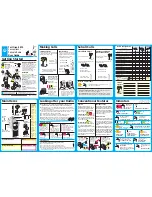
3
all conductors other than the equipment grounding conductor. The
frame of the generator shall be connected to an approved grounding
electrode.
For power outages, permanently installed stationary generators are
better suited for providing backup power to the home. Even a properly
connected portable generator can become overloaded. This may result
in overheating or stressing the generator components, possibly leading
to a generator failure.
1.3 MAINTENANCE SAFETY
Warning!
After any maintenance is performed, wash immediately using soap and
clean water because repeated exposure to lubricant may cause skin
irritation.
Do not clean the filter element with flammable liquids like gasoline
because an explosion may occur.
Turn off the engine before performing any maintenance. Failure to do so
can cause severe personal injury or death.
Allow the generator set to cool down before performing any
maintenance.
Always wear safety glasses when cleaning the generator set with air.
Do not clean the generator set with a pressure washer because it can
damage the generator set.
When working with batteries, ventilate the area, use safety glasses, do
not smoke. Always disconnect the negative first and reconnect it last.
Use rubber gloves when coming into contact with engine oil.
Always stop the generator set before removing the oil filler cap.
Only qualified maintenance personnel with knowledge of fuels,
electricity, and machinery hazards should perform maintenance
procedures.
Lubricate all exposed metal parts regularly. See chapter 7.1 for
maintenance schedule.
1.4 OTHER SAFETY TIPS
Warning!
To avoid breathing in poisonous carbon monoxide from the exhaust
gases, adequate ventilation should be provided if the generator set is
running in a partially enclosed space.











































